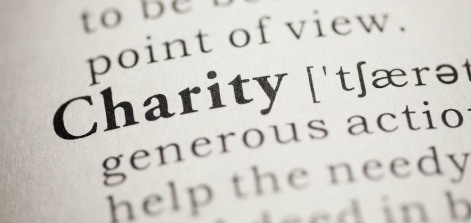Many of us give charitably, whether on a regular basis to a favourite organisation, or through one-off donations here and there. But when David Craig's elderly mother became swamped with constant letters and calls from various charities, he decided to investigate just what happens to the money we donate to our favourite causes.
David Craig
Britain's bloated charity sector
Posted on: Thu 18-Dec-14 14:22:50
(36 comments )
My 88-year-old mother has always given money to a few selected charities. But recently she has been bombarded by letters and calls from a huge range of charities all asking her to donate to them. As my mother is increasingly frail and housebound, I began to worry about the effect the barrage of begging letters and phone calls was having on her and so decided to investigate Britain's charity industry.
The figures are astonishing. There are more than 195,289 registered charities and charitable institutions in the UK that raise and spend close to £80 billion a year. Plus there are another 191,000 charities that don't need to register, either due to legal exemptions or because they raise less than £5,000 a year. And the Charity Commission receives around twenty five new applications for charitable status every single working day.
These registered charities employ over one million staff. Five times as many people work for charities, the so-called 'voluntary sector', than run our railways providing four million journeys a day, about one and a half billion journeys a year.
With too many charities, at least half of our money goes on management, administration, strategy development, political campaigning and fundraising - not on what most of us would consider 'good causes'.
These charities make a huge 13 billion 'asks' for money every year - that's around two hundred 'asks' for every man, woman and child in the UK.
Britain's registered charities claim that almost ninety pence in every pound we give is spent on 'charitable activities'. But with many of our best-known charities, the real figure is likely to be less than fifty pence in every pound. With too many charities, at least half of our money goes on management, administration, strategy development, political campaigning and fundraising - not on what most of us would consider 'good causes'.
Just in England and Wales there are 1,939 active charities focused on children; 581 charities trying to find a cure for cancer or else help victims of cancer; 354 charities for birds; 255 charities for animals, 81 charities for people with alcohol problems and, even in a limited field like leukaemia, we have no fewer than 68 charities all eagerly asking for our money for their particular good cause. In a few cases, similar charities have merged allowing them to drastically cut their running costs and spend millions more on charitable work.
A parliamentary report found that with so many charities, the Charity Commission has completely lost control over what charities do with our money. We urgently need to reduce the number of charities by merging those that work on the same issues so that much more of our cash goes to real charitable causes.
David Craig is the author of The Great Charity Scandal, published by Thistle Publishing and available from Amazon.






